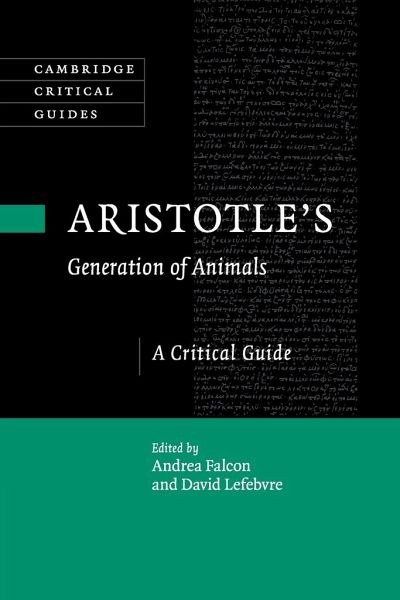
Aristotle's Generation of Animals
Versandkostenfrei!
Versandfertig in 1-2 Wochen
42,99 €
inkl. MwSt.

PAYBACK Punkte
21 °P sammeln!
Provides a critical and philosophically informed exploration of this, one of the most mature, sophisticated, and carefully crafted scientific writings, in which Aristotle gives an account of animal reproductive processes. Important for scholars and students of ancient philosophy and of the history and philosophy of science.




